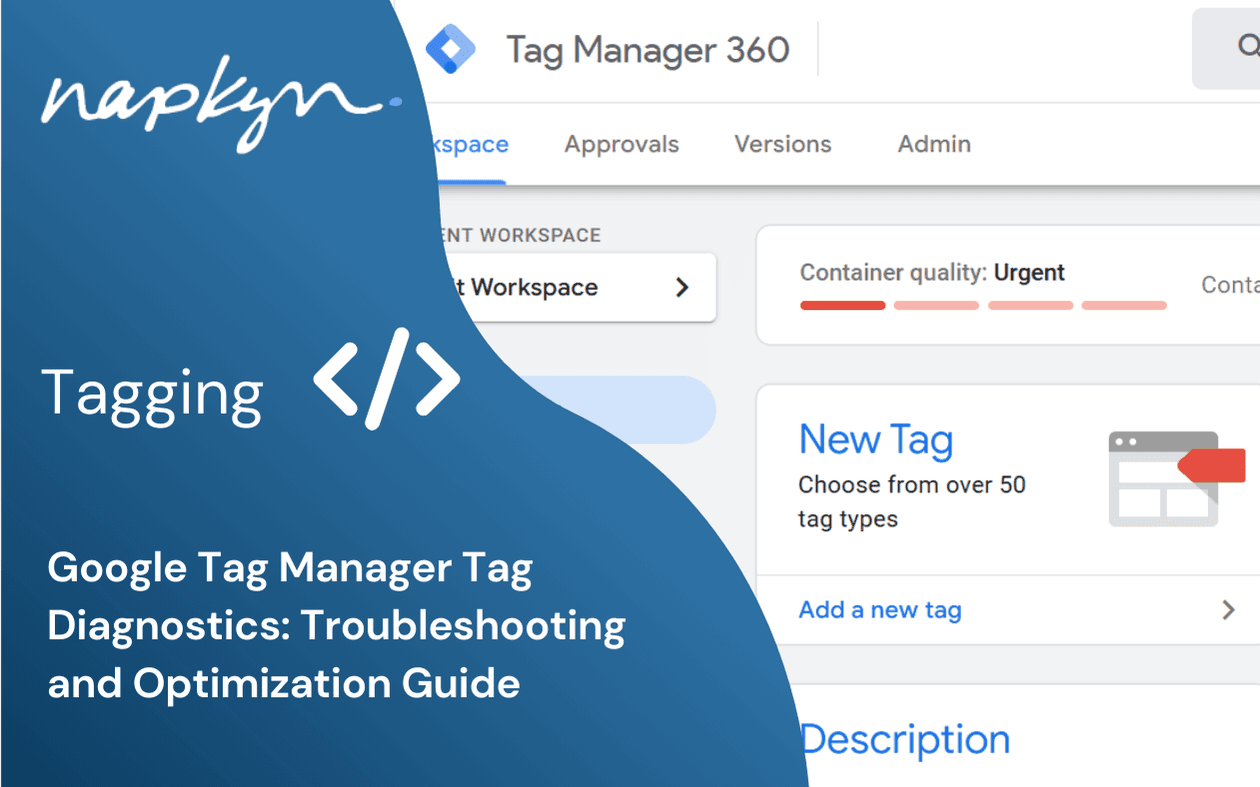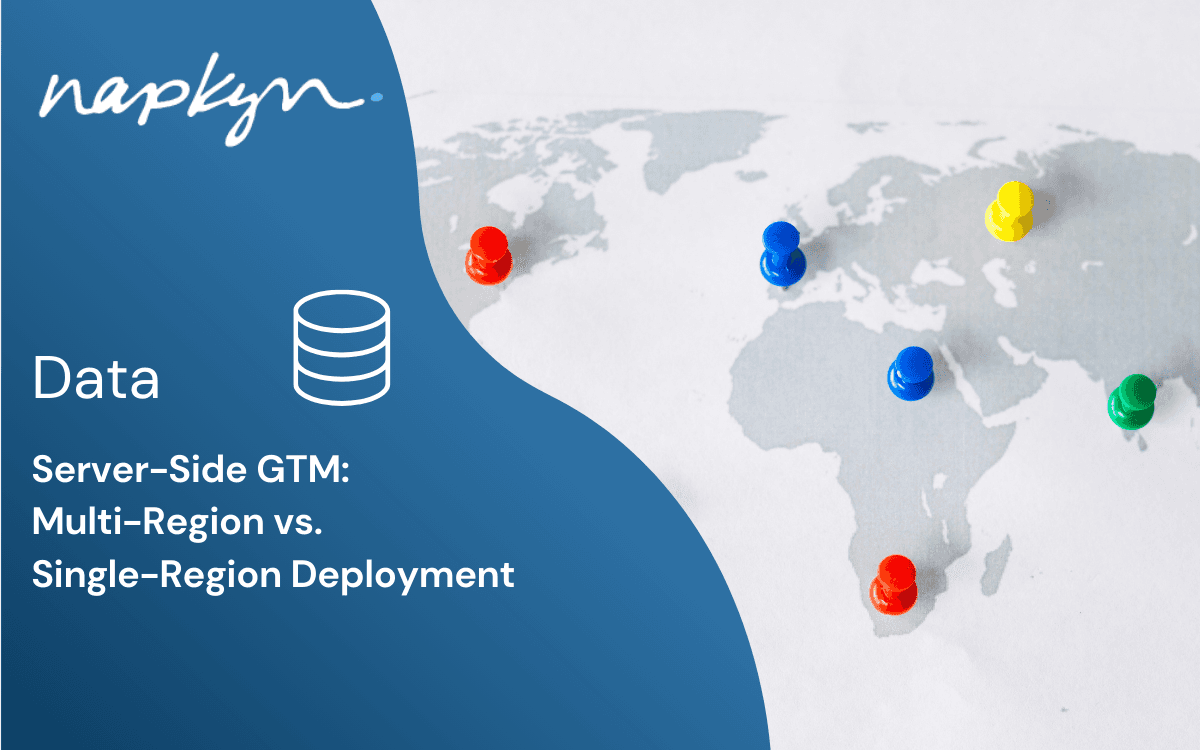

It's the end of cookies as we know them, and I feel fine
Google Chrome has confirmed that they will not be phasing out cookies. Instead, they are enhancing their browser with additional privacy controls. Jasmine elaborates on why this decision is actually no big deal.

Jasmine Libert
Head of Data Solutions
"I like to think about this stuff in my free time. "
By now, we’ve all seen the news about Google’s big announcement on Monday, July 22, 2024, regarding third-party cookie deprecation (3PCD). They’ll be sticking around in Chrome browsers for now, and while it was certainly a bit frustrating for those of us who have spent significant time preparing, I believe we’re ultimately better off for all the strategic planning and thought exercises we conducted.
And seriously, if this news has you overly excited, you might be too reliant on third-party cookies.
Here are some key areas we focused on while preparing for the demise of third-party cookies, and why I believe our efforts were far from a waste of time:
First-party data can be more accurate and reliable.
Third-party cookies often result in fragmented and incomplete user data, leading to less accurate targeting and measurement. Relying on multiple third-party sources can create data silos, complicating the process of creating a unified view of the customer. I like to call this practice "data hoarding," and I see it often. This is where an organization collects multiple third-party datasets across multiple tools and teams without unifying them to glean holistic insights about the business. This can be incredibly costly and lead to a murky view of how the business is performing.
First-party data, on the other hand, is collected directly from interactions with your customers. By gathering data from various touchpoints, a business can create a comprehensive view of its customers, providing richer insights into customer behavior and preferences. This enables more effective personalization and targeting, ultimately leading to better marketing outcomes.
Consumers are really starting to care about their privacy - and rightfully so!
With the rise of stringent privacy regulations such as GDPR and CCPA, companies are being closely scrutinized on how they collect, store, and use personal data. These regulations are not only becoming stricter but are also being joined by new ones like LGPD, Bill C-27, DPDPA, Law 25, and POPIA, among others. Non-compliance with these regulations can result in significant fines and penalties, but more importantly, it can erode customer trust and loyalty.
Privacy regulations often require explicit user consent for data collection, and third-party cookies can complicate compliance with these consent requirements or sometimes outright flout them. As consumers become more aware of and concerned about their online privacy, transparent data practices are essential. They build trust and enhance brand reputation, which can positively impact your bottom line.
Embracing transparent data practices not only ensures compliance but also demonstrates a commitment to respecting consumer privacy. This approach fosters a trustworthy relationship with customers, ultimately leading to increased loyalty and a stronger brand reputation. In an era where privacy concerns are paramount, companies that prioritize and uphold privacy standards will stand out and succeed in the long run.
Technological, regulatory and market shifts can lead to innovation!
The potential deprecation of third-party cookies has pushed many in the marketing technology space to rethink their data collection and customer engagement strategies. Companies that have proactively sought alternative solutions to 3PCD have already begun reaping the benefits of more resilient and privacy-compliant marketing practices.
Let’s be honest, in the martech space, we deal with change constantly and we have to stay on our toes. This environment of continuous change and adaptation fosters a culture of innovation. Each new challenge, whether technological, regulatory, or market-driven, forces us to develop new solutions, refine existing practices, and anticipate future trends.
All of this strategizing means that we’ll be ready for the next thing. And the thing after that. The efforts we've put into preparing for the potential loss of third-party cookies have not been in vain. Instead, they have equipped us with a more robust toolkit for navigating future changes. By embracing innovation and staying agile, we ensure that our marketing strategies remain effective and compliant, no matter what the future holds.
Third-party cookies are here to stay (in Chrome)! But they will be less reliable than before…
Third-party cookies are here to stay, in the sense that they will continue to be supported in Chrome browsers, but the reality of user consent means that many more of them will drop off. When users are prompted for consent, most will likely say no - we’ve already seen this happen with Safari. As a result, even though third-party cookies will remain technically feasible, their practical utility will be significantly diminished.
The shift towards greater user control and consent-driven data collection underscores the need for businesses to adapt their strategies. Relying heavily on third-party cookies will become increasingly untenable. Instead, companies need to focus on building robust, first-party data strategies, enhancing transparency and respecting customer privacy.
Let’s all take a lesson from our time prepping to lose third-party cookies in Chrome and focus on smarter, more ethical, and ultimately more effective marketing strategies.
Get in touch with our analytics consultants to explore how you can protect your marketing data and simplify data analysis and build winning digital solutions.
More Insights


Google Tag Manager Tag Diagnostics: Troubleshooting and Optimization Guide

Ricardo Cristofolini
Senior Implementation Specialist, Data Solutions
Dec 11, 2024
Read More


November 2024 GA4 & GMP Updates

Napkyn
Dec 4, 2024
Read More


Server-Side Google Tag Manager: Multi-Region vs. Single-Region Deployment

Ketul Dave
Implementation Specialist
Nov 27, 2024
Read More
More Insights
Sign Up For Our Newsletter

Napkyn Inc.
204-78 George Street, Ottawa, Ontario, K1N 5W1, Canada
Napkyn US
6 East 32nd Street, 9th Floor, New York, NY 10016, USA
212-247-0800 | info@napkyn.com

It's the end of cookies as we know them, and I feel fine
Google Chrome has confirmed that they will not be phasing out cookies. Instead, they are enhancing their browser with additional privacy controls. Jasmine elaborates on why this decision is actually no big deal.

Jasmine Libert
Head of Data Solutions
"I like to think about this stuff in my free time. "
By now, we’ve all seen the news about Google’s big announcement on Monday, July 22, 2024, regarding third-party cookie deprecation (3PCD). They’ll be sticking around in Chrome browsers for now, and while it was certainly a bit frustrating for those of us who have spent significant time preparing, I believe we’re ultimately better off for all the strategic planning and thought exercises we conducted.
And seriously, if this news has you overly excited, you might be too reliant on third-party cookies.
Here are some key areas we focused on while preparing for the demise of third-party cookies, and why I believe our efforts were far from a waste of time:
First-party data can be more accurate and reliable.
Third-party cookies often result in fragmented and incomplete user data, leading to less accurate targeting and measurement. Relying on multiple third-party sources can create data silos, complicating the process of creating a unified view of the customer. I like to call this practice "data hoarding," and I see it often. This is where an organization collects multiple third-party datasets across multiple tools and teams without unifying them to glean holistic insights about the business. This can be incredibly costly and lead to a murky view of how the business is performing.
First-party data, on the other hand, is collected directly from interactions with your customers. By gathering data from various touchpoints, a business can create a comprehensive view of its customers, providing richer insights into customer behavior and preferences. This enables more effective personalization and targeting, ultimately leading to better marketing outcomes.
Consumers are really starting to care about their privacy - and rightfully so!
With the rise of stringent privacy regulations such as GDPR and CCPA, companies are being closely scrutinized on how they collect, store, and use personal data. These regulations are not only becoming stricter but are also being joined by new ones like LGPD, Bill C-27, DPDPA, Law 25, and POPIA, among others. Non-compliance with these regulations can result in significant fines and penalties, but more importantly, it can erode customer trust and loyalty.
Privacy regulations often require explicit user consent for data collection, and third-party cookies can complicate compliance with these consent requirements or sometimes outright flout them. As consumers become more aware of and concerned about their online privacy, transparent data practices are essential. They build trust and enhance brand reputation, which can positively impact your bottom line.
Embracing transparent data practices not only ensures compliance but also demonstrates a commitment to respecting consumer privacy. This approach fosters a trustworthy relationship with customers, ultimately leading to increased loyalty and a stronger brand reputation. In an era where privacy concerns are paramount, companies that prioritize and uphold privacy standards will stand out and succeed in the long run.
Technological, regulatory and market shifts can lead to innovation!
The potential deprecation of third-party cookies has pushed many in the marketing technology space to rethink their data collection and customer engagement strategies. Companies that have proactively sought alternative solutions to 3PCD have already begun reaping the benefits of more resilient and privacy-compliant marketing practices.
Let’s be honest, in the martech space, we deal with change constantly and we have to stay on our toes. This environment of continuous change and adaptation fosters a culture of innovation. Each new challenge, whether technological, regulatory, or market-driven, forces us to develop new solutions, refine existing practices, and anticipate future trends.
All of this strategizing means that we’ll be ready for the next thing. And the thing after that. The efforts we've put into preparing for the potential loss of third-party cookies have not been in vain. Instead, they have equipped us with a more robust toolkit for navigating future changes. By embracing innovation and staying agile, we ensure that our marketing strategies remain effective and compliant, no matter what the future holds.
Third-party cookies are here to stay (in Chrome)! But they will be less reliable than before…
Third-party cookies are here to stay, in the sense that they will continue to be supported in Chrome browsers, but the reality of user consent means that many more of them will drop off. When users are prompted for consent, most will likely say no - we’ve already seen this happen with Safari. As a result, even though third-party cookies will remain technically feasible, their practical utility will be significantly diminished.
The shift towards greater user control and consent-driven data collection underscores the need for businesses to adapt their strategies. Relying heavily on third-party cookies will become increasingly untenable. Instead, companies need to focus on building robust, first-party data strategies, enhancing transparency and respecting customer privacy.
Let’s all take a lesson from our time prepping to lose third-party cookies in Chrome and focus on smarter, more ethical, and ultimately more effective marketing strategies.
Get in touch with our analytics consultants to explore how you can protect your marketing data and simplify data analysis and build winning digital solutions.
More Insights

Google Tag Manager Tag Diagnostics: Troubleshooting and Optimization Guide

Ricardo Cristofolini
Senior Implementation Specialist, Data Solutions
Dec 11, 2024
Read More

November 2024 GA4 & GMP Updates

Napkyn
Dec 4, 2024
Read More

Server-Side Google Tag Manager: Multi-Region vs. Single-Region Deployment

Ketul Dave
Implementation Specialist
Nov 27, 2024
Read More
More Insights
Sign Up For Our Newsletter


